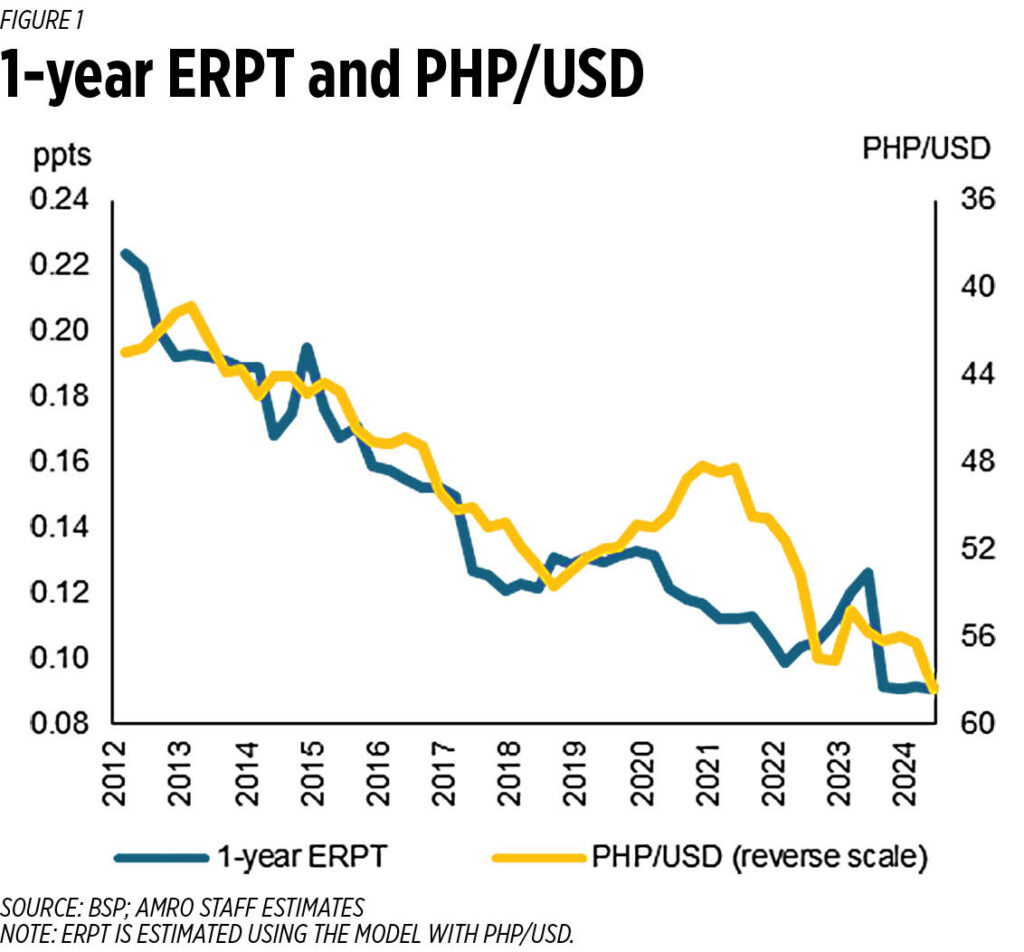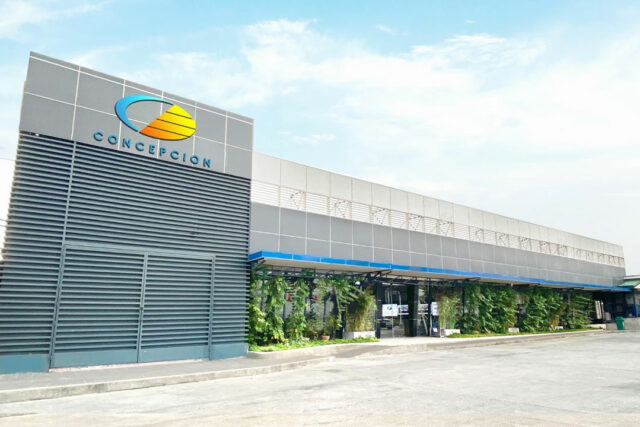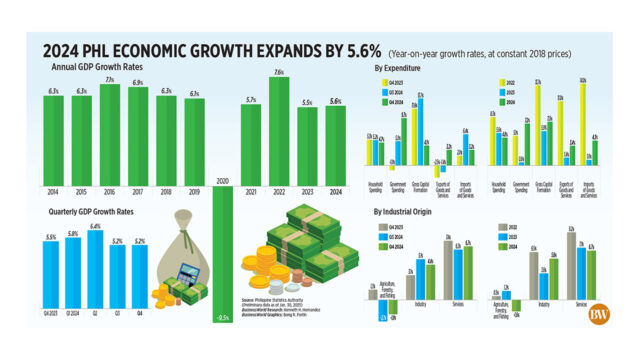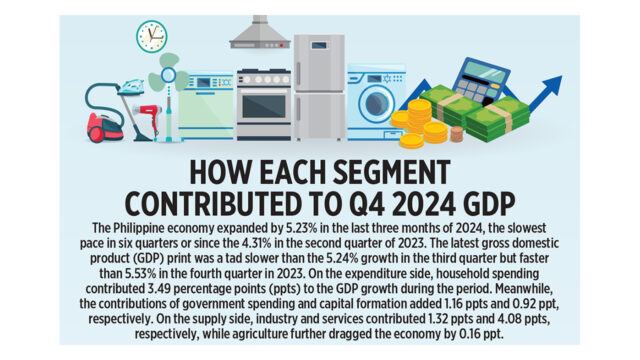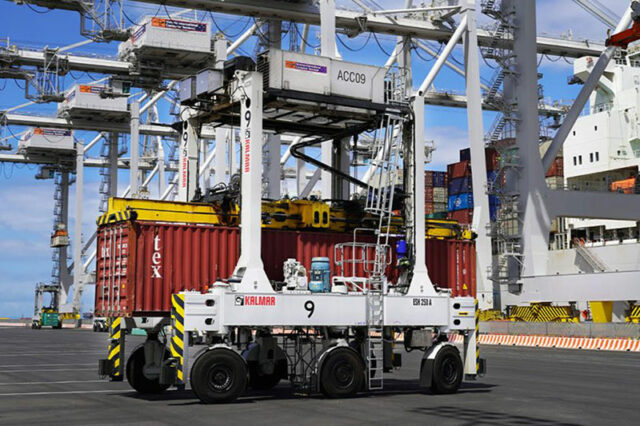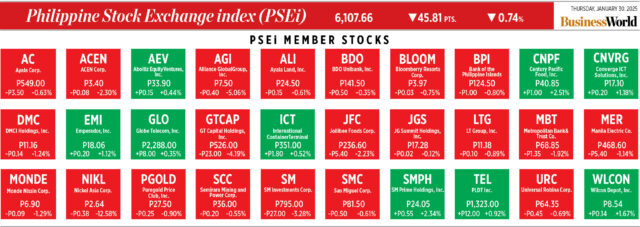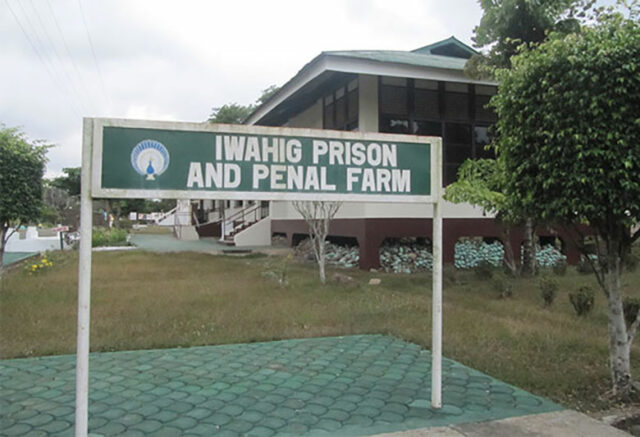Peso depreciation: The culprit driving up Philippine inflation?
IN RECENT YEARS, the Philippines has experienced a sharp rise in inflation and fluctuating exchange rates. The peso depreciated by 10.5% against the US dollar in 2022, briefly recovered with a 1% appreciation in 2023, but fell again by 4.2% in 2024. Meanwhile, inflation reached 5.8% in 2022 and 6% in 2023, before moderating to 3.2% in 2024 — a trend largely aligned with shifts in international commodity prices.
The relationship between exchange rate fluctuations and inflation has long been a subject of economic scrutiny. Many assume that a weaker currency inevitably fuels inflation, as the depreciation directly raises the cost of imports and ultimately drives consumer prices higher. It is essential to look deeper into the data and understand the dynamics between exchange rate and inflation in the Philippines.
To what extent does the peso’s depreciation impact inflation, and how should policymakers navigate the associated challenges?
LIMITED EXCHANGE RATE PASS-THROUGH, MORE FACTORS IN PLAY
A recent study by the ASEAN+3 Macroeconomic Research Office (AMRO) suggests that the impact of peso depreciation on inflation is modest. The study quantifies the exchange rate pass-through (ERPT) — the degree to which exchange rate fluctuations affect domestic inflation. The findings reveal that a 1% depreciation of the peso against the US dollar raises quarterly consumer price inflation by just 0.046 percentage point, with a cumulative one-year effect of only 0.091 percentage point.
When benchmarked against a broader basket of foreign currencies using the nominal effective exchange rate (NEER), the impact is slightly higher but still limited — 0.071 percentage point in the short term and 0.147 percentage point over a one-year period. This subdued pass-through highlights the credibility of the central bank in anchoring inflation, and the influence of other factors, such as firm pricing behavior, administrative price measures, and domestic demand, on inflation.
Interestingly, the ERPT has declined over the past decade, even as the peso has trended weaker. The AMRO study further indicates a diminishing marginal impact of a 1% peso depreciation on CPI inflation as the currency weakens (see Figures 1 and 2). Reduced exchange rate pass-through to consumer prices could be attributed to a credible monetary policy framework, which has anchored inflation expectations, and other structural improvements related to external trade. The evolving dynamics underscores the reduced sensitivity of Philippine inflation to exchange rate movements.
INFLATION OUTLOOK
Looking ahead, the peso is expected to remain volatile in 2025 and 2026, influenced by both domestic and external factors. Global uncertainties, including monetary policy shifts in major economies, geopolitical tensions, and the outlook for global growth, will weigh heavily on the currency. On the domestic front, market expectations of a policy rate cut by the Bangko Sentral ng Pilipinas (BSP) could add to the peso’s fluctuations.
Given that there is room to adjust the policy rate to a less restrictive stance in light of easing inflationary pressures, the BSP is expected to gradually cut rates toward a more neutral stance, targeting a nominal rate of around 4.6% by the end of 2025.
Amid these conditions, the peso should remain market-driven, acting as a shock absorber for the economy. Strategic foreign exchange interventions by the BSP should continue to be deployed judiciously to manage excessive volatility.
Despite the peso’s expected fluctuations, inflation in the Philippines is projected to stay within the BSP’s target range of 2-4%. The moderation of global commodity prices and targeted administrative measures, such as tariff cuts on food items — particularly the reduction in imported rice tariffs introduced in July 2024 — will help alleviate inflationary pressures.
Market concerns about the peso’s impact on inflation should not be overstated, given the limited pass-through effect and the credibility of the BSP in containing inflation within its target band. Policymakers must remain vigilant, striking a balance between supporting economic growth and maintaining price stability, while ensuring that the peso remains a stabilizing force in an uncertain global environment.
Dr. Andrew Tsang joined AMRO in September 2021. He is a senior economist of AMRO focusing on economic surveillance on the Philippines. He is also a backup economist for Cambodia.


